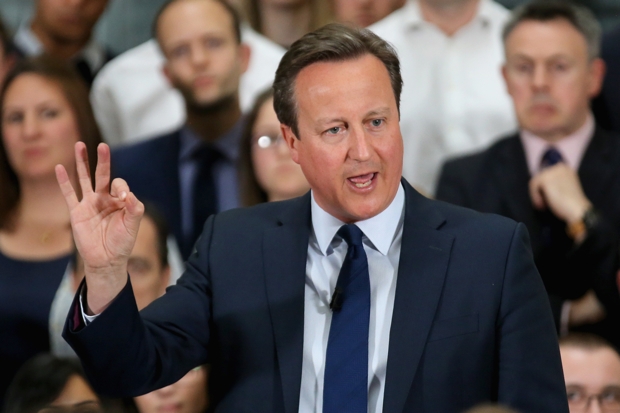Downing Street has spent the past 24 hours trying to clarify David Cameron’s links to an offshore fund set up by his late father, which never paid tax in Britain. Initially, Downing Street said this was a ‘private matter’, Cameron was then asked about the matter, and said ‘I own no shares, no offshore trusts, no offshore funds, nothing like that. And, so that, I think, is a very clear description.’ Then Downing Street issued a statement saying ‘to be clear, the Prime Minister, his wife and their children do not benefit from any offshore funds’. And today Number 10 had to clarify further: ‘There are no offshore funds/trusts which the prime minister, Mrs Cameron or their children will benefit from in future.’
These awkward questions about the links between the Prime Minister and the tax avoidance and evasion schemes revealed in the Panama Papers couldn’t have come at a worse time, given the government is still recovering from the row about cuts to disability benefits, is still trying to deal with the threat to the Port Talbot steelworks, and is in the middle of the EU referendum campaign.
But these questions are also somewhat inevitable – and reasonable. After the subject rose to prominence a few years ago, thanks largely to the fearsome hearings held by the Public Accounts Committee, a number of ministers – particularly George Osborne – have made tackling tax avoidance a theme of their time in office. The Prime Minister has also invited questions about his personal finances by making comments about being ‘relaxed’ about publishing his tax return. Yet he’s managed to avoid publishing it since he made that promise in 2012. And as Damian McBride points out, the Tories haven’t held back from attacking the private arrangements of other politicians when they’ve had the chance.
Labour has benefitted from the Prime Minister’s partial answers over the past 24 hours, because they have been able to come after the Tories with more queries. But once the details are finally whittled down, the question remains whether Labour can sustain the row, or whether it needs to: it is already serving as a useful little contrast to the other big political row, which is about steelworkers losing their jobs.







Comments